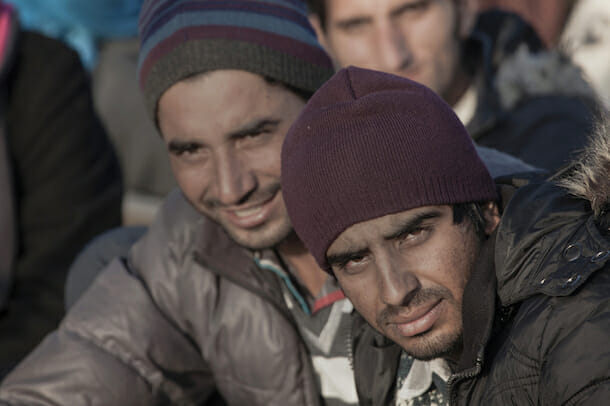
Rocking the Immigration Boat
On June 10, MV Aquarius, the ship carrying 630 people from the coast of Libya was denied the right to dock in Italy and Malta, the closest countries to Europe across the Mediterranean Sea. Italian media quoted a letter written by Matteo Salvini, the new Interior minister of Italy, to the government of Malta describing Malta’s capital Valletta as the most secure port and that the MV Aquarius should dock there. The government of Malta refused, stating that the rescue operations happened in international waters of Libya and were coordinated by Italy. In short, the operations had nothing to do with Malta and as stated by the government, “Malta is neither the competent nor the coordinating authority in this case. Malta will observe prevailing laws.”
This led to a stalemate between the two European Union allies over docking the ship which ended after Spanish Prime Minister, Pedro Sanchez, allowed the ship to dock at the eastern port of Valencia. The incident drew criticism from European allies particularly French President Emmanuel Macron who criticized the Italian government as irresponsible and cynical for blocking the MV Aquarius from docking at Italian ports. The Italian government responded in return stating that “Italy cannot accept hypocritical lessons from countries that in the migration field have always preferred to turn their head to the other side.” The Italians even threatened to cancel the meeting in Paris between French and Italian economy ministers and demanded an apology from Macron.
As severe as were the responses and actions over the issue, two things stand out. One, immigration continues to be an important issue as far as politics in Europe is concerned and second, the European Union is unable to formulate a common response over an issue which concerns all member states. In fact, the immigration issue has divided European states both internally and among countries and has played into the hands of populist parties across the continent that continue to garner massive public support for their anti-establishment and anti-EU causes. The divide is most clearly visible in Germany.
On the day when the MV Aquarius was denied permission to dock at the Italian ports, Germany’s Interior Minister Horst Seehofer, the chairman of the Christian Social Union party, proposed unilateral border controls, to manage what many in Germany see as uncontrolled migration into their homeland. Horst Seehofer advocated the idea of turning away those migrants who have already applied for asylum in another EU member state or were denied entry. For Angela Merkel, this came as a shock as far as her open-door refugee policy was concerned. Moreover, the ultimatum given to seal a deal over the immigration issue in the next two weeks by her coalition partners risk the functioning of her government and also threatens her chances of retaining the chancellorship. The task for Merkel is to reach out to other European leaders and try to find out how countries could potentially take immigrants that Germany is going to turn away.
Whether or not Merkel will be able to reach a deal is going to depend on how negotiations will take place. But, sensing the perception regarding refugees across EU member states, it is hard to imagine that Merkel will be able to convince member countries like Poland, Hungary, Romania, Slovakia and the Czech Republic to agree on a settlement plan. The ruling parties in these countries have outright rejected measures proposed by Brussels on agreed refugee quotas and resettlement plans across the EU. Moreover, they have also criticized Berlin and Brussels for what they see as a softer approach to immigration policies. In many Central and Eastern European countries, the debate around accepting refugees is centered around whether to accept the multicultural EU way of working or stick to their own Christian values, i.e. what defines their national identity. In other words, they see the decision by Brussels as the imposition of authority on their government and refugees as a threat to their Christian values.

In the past, the EU has pressured these countries to change their behavior, by threatening to cut funding that is used for public investments. The 2021-2027 budget plan proposes linking EU cohesion funding to conditions that include accepting the agreed quota of refugees. The problem with such measures is that they require consensus by all EU member states and it is hard to think of why countries would agree on a funding process that challenges their policies at home. To put this in perspective, the proposed budget plan only tends to incentivize or penalize member states that will or will not accept refugees but fails to bring about an actual change in their policies.
Knowing the limitations of how the EU functions, it should not come as a surprise that Hungarian Prime Minister Viktor Orban has lauded Italy’s decision to turn away the MV Aquarius rescue vessel as a move that could bring real changes in Europe’s migration policies. For Merkel, the problem is that she will find it hard to convince member states to come together to address the common refugee problem. The issue that lies at the heart of the problem is that the refusal to find common ground will weaken the liberal values of the EU and challenge the working of the EU in a way which directly plays into the hands of anti-EU parties. To change this course Merkel has limited options.
Already, populist parties across Europe are finding a strong majority among the electorate and their ability to influence the discourse around the migration issue is also not unnoticed. If one were to analyze Horst Seehofer’s decision to introduce unilateral border controls one finds the rising popularity of the far right AFD as a predominant reason. The CSU party hails from Bavaria and has lost ground to the far right AFD party in the parliamentary elections of 2017. The fear looms of a repeat in the regional election in October, 2018.
AFD is also a concern for Merkel, but for her, the solution lies in finding a common ground with other EU member states. What Merkel wants to achieve is solidarity towards the common values of the EU and preserve the liberal order in Europe. Introducing border controls would go against the idea of the EU and her open-door policy. The fear for Merkel is that if every European country starts turning back refugees to the point where they first applied for asylum that would put additional pressure on Greece and Italy, who are economically strained to handle the refugee crisis. With the new hardline government in Italy, this would lead to a full-blown refusal of any policy that Merkel would want member states to agree on. With Donald Trump’s protectionist trade policies and his open challenge to the liberal order in Europe, a more fragmented Europe is the last option that Merkel would want.
Migrant flows are receding for now. As per the data released by the European Asylum Support Office, the number of asylum applications in 2017 shows a 44% decrease with only 728,470 applications for international protection in the EU compared to almost 1.3 million applications in 2016. A part of the decline in asylum applications can be attributed to agreements that EU member states reached with Turkey and Libya in exchange for monetary concessions. However, the rhetoric over immigrants has not died down. This is because most of the immigrants who have arrived in Europe are going to stay in Europe with the hope of making a future. Migration, therefore, will remain an issue that will continue to provide political mileage to antiestablishment parties. Populist parties, therefore will not let this issue fade away easily and will continue to cultivate support and change public perception. For Merkel and other liberal leaders, the challenge is to change this narrative.

